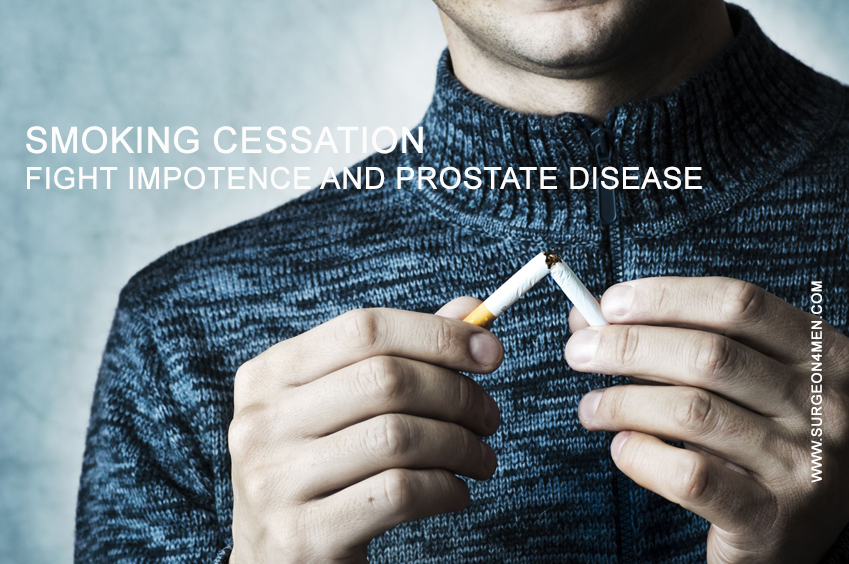Smoking Cessation | Fight Impotence and Prostate Disease
Smoking cessation, often referred to as quitting smoking is very important for reducing the risks of developing diseases that are caused by too much dependence on tobacco and nicotine. There are numerous health benefits of smoking cessation. Smoke from tobacco contains a deadly mixture of more than 7000 chemicals of which hundreds are harmful and more than 70 are known to cause cancer. People who quit smoking can considerably reduce their risk for developing various diseases and chances of early death.
Impotence in Smokers
Fighting Prostate disease by quitting Smoking
A study was conducted by researchers at the Fred Hutchinson Cancer Research Center in which a group of 1450 men were studied. Half of these men had prostate cancer and the other half did not. The study found that heavy smokers under the age of 65 years had a high probability of developing aggressive forms of prostate cancer. The study also found that former smokers can reduce their risk of developing prostate cancer to the same level as that of non-smokers within a period of 10 years of non-smoking. People who smoke are at a greater risk of dying due to prostrate cancer. There is a high likelihood of reoccurrence of prostate cancer and its eventual spread to other body parts in patients who are smokers.
Smoking Cessation
Some of the methods that can prove to be helpful while trying to quit smoking are listed below:
- Plan on a date for quitting smoking. Ensure that the date is 1-3 weeks in the future.
- Prepare for the date by cutting down on smoking and trying to keep away from the places where you like to smoke.
- Devise an alternate plan for dealing with stressful events without smoking.
- Try to stick to your plan of a clean break and do not keep smoking every now and then.
- You must remember that cravings for tobacco are short lived and will go way irrespective of the fact whether you smoke or not.
Health Benefits of Smoking Cessation
There are numerous health benefits of quitting smoking. These are listed below:
- Reduced risk of lung cancer and other types of cancers
- Reduced risk of cardiovascular diseases
- Reduced respiratory disorder symptoms such as wheezing, coughing, and shortness of breath.
- Improved autoimmune system
- Improved bone density
References
- “Association between Smoking and Erectile Dysfunction: A Population-based Study.” by Naomi M. Gades, et all. Published in Volume 161, Issue 4, 2005 edition of American Journal of Epidemiology Journal of Consulting and Clinical Psychology, accessed on 20 July 2015. Retrieved from: http://dx.doi.org/10.1093/aje/kwi052
